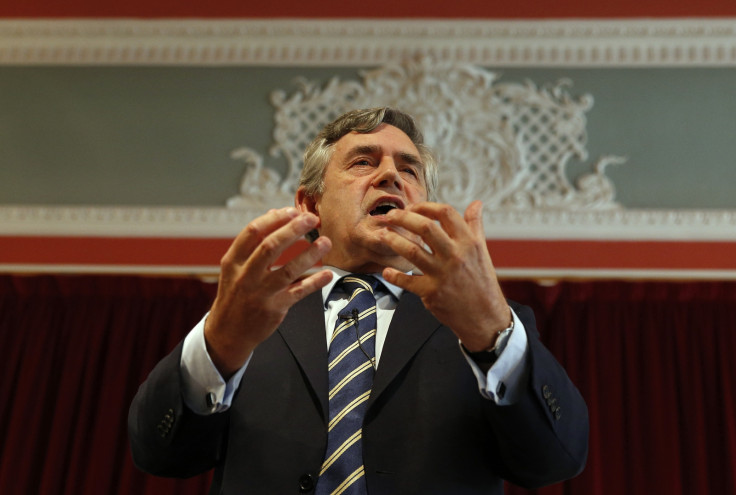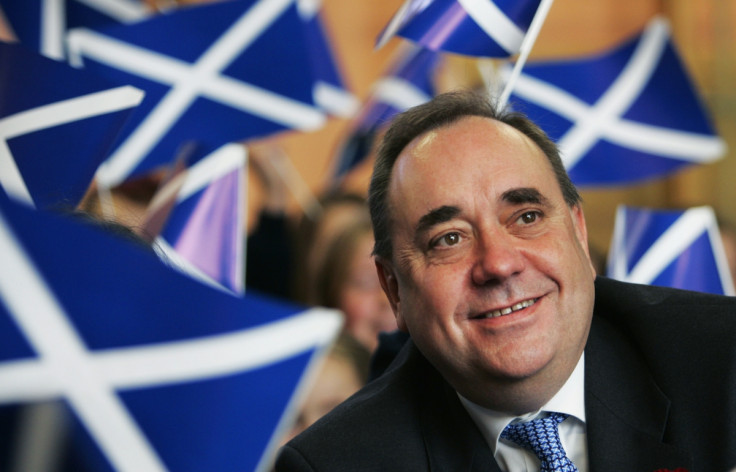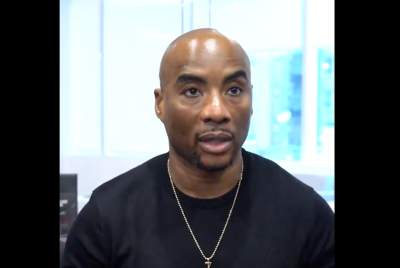The Chaos That Threatens British Politics After a 'Yes' Vote in Scotland

The full scale of the chaos that would engulf British politics after a "yes" vote in Scotland has started to hit home in Westminster amid the growing belief both David Cameron and Ed Miliband would have to quit and hints the 2015 general election could be postponed.
Both party leaders have publicly insisted they would not resign over the issue because, they say, it is about far more than the fate of individual politicians. But they have to say that.
Similarly the idea of delaying the 2015 election for 12 months to allow independence to fully take place has also been ruled out by constitutional advisers.
But with the opinion polls suggesting Alex Salmond is closing the gap and may yet pull off a sensation in two weeks' time, panic has started to set in as MPs and Whitehall start to grapple with all the consequences.
At the moment the plan is that, after a "yes" vote on 18 September there would be a period of negotiations over the practicalities of separation.
That has been expected to run until 24 March 2016, which Salmond has already named Independence Day, just before the next elections to the Scottish parliament that May.
Scotland can lead the way towards a New Union whose basis is the recognition of difference, whose decision-making mechanism is power-sharing and whose form of government is a constitutional partnership of equals.
But, under the five year fixed-term Westminster parliament introduced by Cameron, the next general election is in May 2015 leaving open any number of questions about what happens between that poll, the last by the United Kingdom, and full independence.
The first crisis will come immediately after a "yes" vote when it is expected Cameron will feel obliged to resign as a consequence of being the Conservative and Unionist prime minister who lost the Union.
There have also been growing signs that backbenchers might move to oust him anyway, with the Independent newspaper claiming some Tory MPs have already been discussing potential leadership candidates for a challenge immediately after the referendum.
The rebels believe the party would need a new face, and one that didn't appear to be a loser, in time for the general election next May.
There would also be an eruption of anger over Cameron's failure to hold the UK together which would combine with existing simmering discontent over his leadership style and stand on the EU to make a challenge virtually certain.
But Ed Miliband's position has now also started to come under scrutiny with a growing number of MPs believing he, too, might be forced out, to take his share of responsibility for a failed "Better Together" campaign.
Notably Labour's big beasts, Gordon Brown and John Reid, have been beefing up the "no" campaign amid signs Labour voters are defecting to the "yes" camp.
Brown delivered a speech in Westminster in which he revealed he was set to lead a full Commons debate on the promised devolution of more power to Scotland in the event of a "no" vote.

And he promised the vote would still mean significant change to the UK, saying: "Scotland can lead the way towards a New Union whose basis is the recognition of difference, whose decision-making mechanism is power-sharing and whose form of government is a constitutional partnership of equals."
What is really worrying both Labour and Tory MPs is that, with Miliband currently looking at a small Commons majority, at best, at the next election, that would be wiped out when Scottish Labour MPs were forced to leave Westminster when independence actually happened.
It is likely Miliband could only rule with his Scottish MPs for a year, while the Tories would likely have a majority in England.
That has sharpened fears that Labour might need a more attractive and powerful leader to take them into the general election in order to win a majority without relying on Scottish MPs.
Some Tory MPs have suggested the only constitutional option would be to delay the general election until 2016, after independence had happened.
The idea of the Tories appearing to be hanging onto power for another year, however, seems unlikely to go down well and has, so far, been rejected by Westminster's constitutional advisers.
But all this uncertainty explains why waves of anxiety sweep through the ranks of Westminster MPs every time Alex Salmond appears on TV.
© Copyright IBTimes 2025. All rights reserved.






















